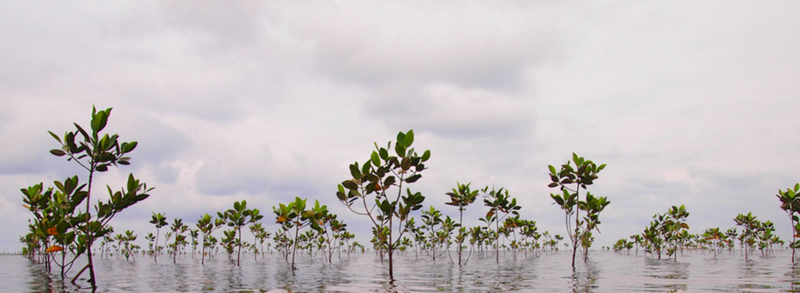According to the Exec. Director of Philippine Chamber of Coal Miners, Inc., Semirara Mining and Power Corporation has become the template for coal mining in the Philippines due to their best practices in environmental protection and restoration. Is the Philippine oil, gas and coal sectors ready for the energy transition for reduced greenhouse gas emissions? (Photo credits: www.semiraramining.com)
Most industries are dependent on fossil fuels to operate. However, in response to climate change, there is a global trend that encourages countries to join in the energy transition of using green technologies. While in theory, this strategy looks promising and feasible. However, in some countries, like in the Philippines, this is a major challenge.
This was the scope of the roundtable discussion (RTD) last 4th of May 2022 during PH-EITI Conference with the Department of Finance and Department of Energy. The theme of the event was "Preparing the Extractives for Energy Transition".
To tackle the issues behind energy transition, PH-EITI and the Department of Energy- Energy Policy and Planning Bureau (DOE-EPPB) organised this RTD to provide energy stakeholders with information on existing policies and future government programs that will lead to the shift to a sustainable and low carbon economy. “Using the PH-EITI platform, the RTD intended to elicit stakeholder perspectives on energy transition and thresh out issues on the implications and effects of the transition on various sectors.”
Moreover, the of goal of the RTD this year is to inform the participants and involved industries about the Philippine's progress in implementing transition plans, policies and commitments, as well as the rollout of government programs to sectors that will be affected by the shift.
In the RTD, the different presenters and speakers discussed how the various sectors intend to address the issue of climate change in order to prevent future environmental problems.
On our previous article about this event, we reported the views of the mining industry about the energy transition, where most mining companies are ahead in taking proactive steps to achieve environmentally friendly operations and proper waste management.
This time, we shall highlight the reaction of the oil, gas and coal industries about the global transition.
Dir. Dona Minimo, Director, International Finance Group, Department of Finance, reported that the Philippines greenhouse gas emissions are currently a minor contributor to global warming at approximately 0.33% of the world share of greenhouse gases (GHD) emissions. “However, due to its economic development and rapidly growing population, the Philippines is projected to have sharp increases in CO2 emissions over the incoming decades. GDP growth is expected to strengthen seven to 8% in the medium term.”
Dir. Michael O. Sinocruz, OIC-Director, Energy Policy and Planning Bureau, Department of Energy, said that the Philippine Energy Plan 2020-2040 is connected with the goals of Ambisyon Natin 2040 which represents the collective long-term vision and aspirations of the Philippines in the coming years. In support of these aspirations, he shared that the DOE formulated the 9-point energy agenda, among these are providing access to electricity for all Filipinos, promoting energy efficiency, and establishing a pro-consumer framework.
According to the report in the RTD, “The mining, oil, gas, and coal industries are among industries directly affected by the global shift to net-zero emissions. As the energy transition progresses, fossil fuel producing or dependent communities and countries will face challenges sustaining revenues and the national economy in general. Communities that rely on revenues and jobs generated by fossil fuel production are among the most vulnerable to the transition.”
Therefore, in order to cope up with the difficulties that the transition will bring, producing communities and countries will have to find alternative revenue sources to replace the lost income.
“On the other hand, increased deployment of modern renewable energy and energy-efficient technologies also mean an increased demand for rare earth elements and other mined inputs. This will require a substantial ramp-up of existing production capacity. This means transition to a sustainable low carbon economy will definitely reshape the extractive industries.”
Director Arnulfo A. Robles, Executive Director of the Philippine Chamber of Coal Mines, Inc. (PHILCOAL) reported the perspective and achievements of the coal sector on the energy transition. He mentioned that Semirara has become the template for coal mining in the Philippines. Regarding environmental restoration and biodiversity, Semirara Mining and Power Corporation (SMPC) has conducted reforestation and biodiversity conservation goals, and reforestation and wildlife species propagation.

and shelter to various wildlife. (Photo credits: www.semiraramining.com)
The company is currently studying and developing a concrete carbon transition roadmap. Part of SMPC’s strategy is to continuously monitor new and emerging climate-change legislation measures. They also assess its impact on business sustainability and future growth. SMPC bagged the Special Submission Category in the 2021 ASEAN Energy Awards.
For oil and gas sector’s perspective on energy transition Atty. Jose Ma. Emmanuel A. Caral, Secretary of the Petroleum Association of the Philippines. He disclosed that while companies remained focused on exploring, developing and producing the conventional oil and gas business, other companies have already started to diversify, and have made explicit commitments to achieve net zero emissions by 2050.
Atty Caral noted that there is a relatively slight growth in energy mix for power generation particularly in the wind and solar energy. He mentioned that oil and gas companies should choose to support the UN-Paris Agreement, it can significantly reduce emissions and energy consumption; lower carbon energy, reduce investment in traditional oil and gas. Unfortunately, he said that the Philippines continues to be heavily dependent on conventional fuels for transportation (by land, air or sea). He concluded that energy security is the replacement of affordable energy source to consumers.
-----
Reference:
PHEITI Website at https://pheiti.dof.gov.ph/resources/










